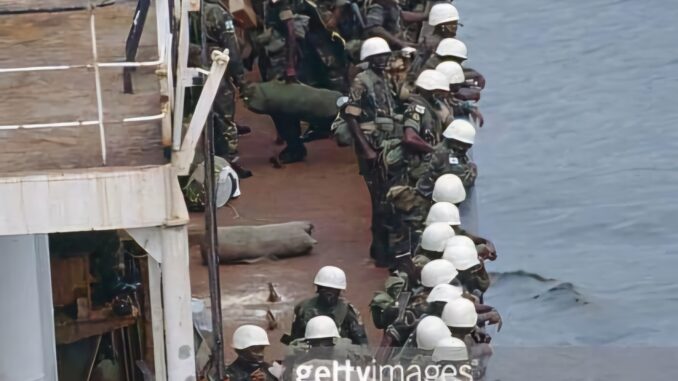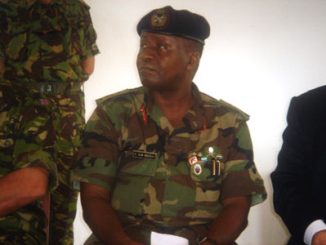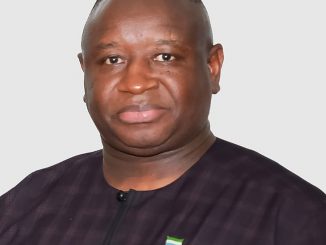
By PENDRAGON 🐉
For any information, contact CAMB on 074567582
On September 15, 2024, the expectation that the ECOWAS Mission in Sierra Leone (ECOMSIL) would complete its repatriation from the country was not met, leaving many Sierra Leoneans bewildered and concerned. This mission, initially deployed in Sierra Leone in 1997 to help restore peace during the brutal civil war, had already overstayed its welcome by several years. The continued presence of ECOMSIL was meant to be a temporary solution, but as the years passed, the question of why the mission had not concluded remained largely unanswered. Now, with the postponed repatriation, it is imperative for the Economic Community of West African States (ECOWAS) and ECOMSIL to provide the Sierra Leonean people with a thorough explanation.
A HISTORY OF ECOMSIL’s PRESENCE IN SIERRA LEONE
ECOMSIL was part of a broader regional peacekeeping force deployed by ECOWAS to stabilize Sierra Leone, which had been embroiled in a devastating civil war from 1991 to 2002. Following the war, the country slowly began rebuilding, and ECOMSIL was tasked with monitoring the peace process, overseeing disarmament, and supporting Sierra Leone’s democratic transition.
Over time, however, the mission became seen by many as a symbol of regional interventionism that overstayed its purpose. By the mid-2010s, with the country largely at peace, the presence of the peacekeeping force began to feel unnecessary. Sierra Leone had held successful elections, stabilized its security situation, and begun to show signs of economic recovery. Calls for the repatriation of ECOMSIL grew louder, as many Sierra Leoneans wanted their country to fully reclaim sovereignty without the perceived burden of foreign forces.
THE SEPTEMBER 15 DEADLINE
The original date set for the repatriation of ECOMSIL’s forces was September 15, 2024, a date that was supposed to mark the conclusion of its peacekeeping operations in Sierra Leone. The mission had already been reduced in size in recent years, with much of its functions taken over by local authorities and regional bodies. As the deadline approached, expectations were high that the mission would finally leave, allowing Sierra Leone to complete the process of recovery from decades of conflict without foreign military involvement.
However, when September 15 passed and the troops did not leave as planned, the government and citizens of Sierra Leone were left in a state of confusion and frustration. No clear communication from ECOWAS or ECOMSIL provided an explanation for the delay. Instead of a smooth transition, there was a sense of abandonment and neglect, with the people wondering why this critical step in the country’s recovery process had been postponed.
WHY THE PEOPLE DESERVE AN EXPLANATION
The failure to repatriate ECOMSIL on the promised date is not a minor oversight; it has serious implications for Sierra Leone’s political, social, and economic future. ECOWAS and the African Union have long championed the principle of African solutions to African problems, emphasizing the importance of local ownership of peace and security. When foreign forces linger beyond their necessary time frame, it can undermine local institutions, foster dependency, and hinder national pride and sovereignty.
The people of Sierra Leone have already sacrificed so much during the years of civil war and the subsequent peacekeeping period. They have worked tirelessly to rebuild their country, and the presence of foreign peacekeepers has been both a reminder of the past conflict and a symbol of the region’s investment in their future. However, this investment needs to be gradually replaced with confidence in local governance and the country’s own ability to maintain peace and security.
When ECOWAS and ECOMSIL miss deadlines or fail to follow through on promises like the September 15 repatriation, it raises questions about their commitment to respecting the sovereignty and aspirations of the Sierra Leonean people. Without a clear explanation for the delay, many will wonder whether the mission is still necessary or whether there are hidden political or logistical reasons behind its continued presence.
ACCOUNTABILITY AND TRANSPARENCY ARE KEY
The government of Sierra Leone, as well as civil society organizations, have every right to demand answers. ECOWAS and ECOMSIL must be held accountable to the people they have promised to assist. Transparency is key in addressing the growing unease within the population. Why was the September 15 deadline missed? What steps are being taken to ensure the mission’s eventual exit, and what impact will this have on Sierra Leone’s national security and stability?
Moreover, it is crucial for ECOWAS to explain the broader implications of the mission’s continued presence in the region. Sierra Leone’s people need assurances that their security forces are sufficiently equipped and trained to take over full responsibility. The government should also be included in discussions to determine the timeline for ECOMSIL’s full repatriation, with all steps clearly laid out to avoid any further uncertainties.
FINALLY:
The delay in repatriating ECOMSIL from Sierra Leone on September 15, 2024, raises critical questions about the future of peacekeeping missions in post-conflict countries and the role of regional organizations in ensuring national sovereignty. The people of Sierra Leone deserve a clear, honest explanation from ECOWAS and ECOMSIL about why the mission has not been concluded as promised. The continued presence of foreign peacekeepers, while once necessary, must eventually give way to the strengthening of local institutions and a fully independent Sierra Leone.
Only through transparency, accountability, and cooperation can this process move forward in a way that benefits the people of Sierra Leone and secures the lasting peace they have fought so hard to achieve.
#PENDRAGON




Leave a Reply